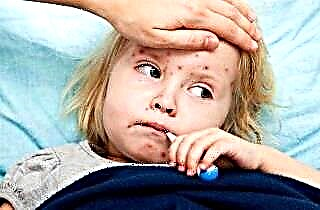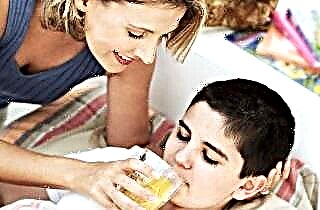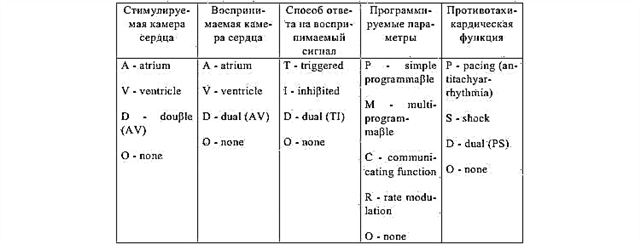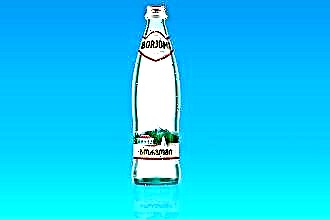Cough is common in children. In the smallest, it has physiological reasons and allows you to clear the nose and larynx. In older children, immunity is not yet able to quickly cope with an infection that has entered the body, and the thermoregulation system is imperfect. Therefore, colds and acute respiratory infections are constant children's companions, to which most mothers are calm. But when a child has a cough at night, it exhausts not only the baby, but also his parents, depriving everyone of the opportunity to have a good rest. And it is necessary to take measures to eliminate it immediately.
Causes of a nocturnal cough
 A cough is a reflex act of the body, with which it reacts to external or internal stimuli, as well as the mechanism by which it gets rid of excess mucus. Depending on the state of health of the baby, it can be a periodic coughing (15-20 times a day is normal) or a paroxysmal cough in a child.
A cough is a reflex act of the body, with which it reacts to external or internal stimuli, as well as the mechanism by which it gets rid of excess mucus. Depending on the state of health of the baby, it can be a periodic coughing (15-20 times a day is normal) or a paroxysmal cough in a child.
It is quite natural that coughing attacks occur more often at night. During the day, the child moves a lot, his head and body are in an upright position and cleansing of mucus occurs on its own - it is swallowed or flows out through the nostrils. When the baby is in a horizontal position, mucus accumulates in the nose and throat, provoking a night cough in the baby.
The main reasons why a cough appears at night is not always associated with respiratory diseases. It can be:
- Colds, acute respiratory infections, ARVI. The cough is easily recognizable, as it is accompanied by symptoms typical of respiratory diseases: runny nose, fever, chills, weakness, headache. In the early days, antiviral drugs and alternative methods of treatment are effective.
- Bronchial asthma. A coughing fit often occurs at night. It is sharp, suffocating, causes panic in the child, the coughing up sputum looks like a lump of translucent mucus (glassy). The fastest way to stop an attack is by using a special inhaler.
- Allergic. It is also easily recognizable, as it is accompanied by profuse mucus secretion, severe swelling, reddening of the conjunctiva of the eyes, and sometimes skin rashes. With weak exposure, the allergen constantly irritates the larynx, provoking a cough, and sometimes severe attacks of dry cough.
 Diseases of the stomach (reflux, gastritis, ulcer). They are characterized by attacks of coughing after daytime or nighttime sleep and meals. The cough causes severe irritation of the esophagus, caused by the throwing of stomach contents into it. This happens more often at night due to the horizontal position of the body.
Diseases of the stomach (reflux, gastritis, ulcer). They are characterized by attacks of coughing after daytime or nighttime sleep and meals. The cough causes severe irritation of the esophagus, caused by the throwing of stomach contents into it. This happens more often at night due to the horizontal position of the body.- Heart cough. It provokes a lack of oxygen, which the body feels in heart failure and perceives as suffocation. The cough is dry, sharp, barking, rarely - with traces of blood.
- Parasites. Night coughs can also cause worms, which infect various organs of the child and cause severe irritation. Their presence can be suspected by frequent diarrhea, weight loss, lack of appetite.
- Infectious diseases (measles, whooping cough, diphtheria, scarlet fever, tuberculosis). They do not always give a high temperature right away. Often a nocturnal cough is the only symptom of the onset of such a disease, and after a few days the child's condition worsens.
There is no time and sense to find out the causes of cough at night. All that mom can do is to relieve the attack as quickly as possible and wait for the morning. Then, according to the child's condition, it is necessary to make a decision on how to continue to be treated - independently or with the help of a doctor.
How to relieve an attack
This must be done correctly, and not all procedures that help older children are allowed for infants. They should not rub the chest with warming ointments and do steam inhalations when a child has a strong wet cough. After these procedures, the mucus swells, blocks the narrow larynx and nasal passages and can cause an attack of suffocation.
An approximate scheme that helps to quickly stop a severe cough in a child at night looks like this:
- Change the position of the body. Place the baby in the crib or adjust the pillow so that the upper body is in an elevated position. This will help the mucus drain and make breathing easier.
- Give warm drink. It relieves attacks of dry cough, moisturizing the mucous membranes of the larynx, and moist - washing away thick mucus that makes breathing difficult. It is better to give the baby a drink with a weak decoction of chamomile, mint, lemon balm, sage.
- Milk with honey. Warm milk envelops irritated mucous membranes and instantly stops a dry cough in a child. Add a teaspoon of honey and / or ghee to it. For wet coughs, add a pinch of baking soda to the milk. Milk with soda and gastric cough helps well.
- Check air humidity. Often, an attack of a strong dry cough can provoke too dry indoor air. It dries out the mucous membranes, and the child's throat cracks, he begins to cough. You can use a regular spray, humidifying the air half a meter from the baby's crib.
 Provide oxygen access. The body perceives a lack of oxygen as suffocation and a reflex cough begins, with the help of which the lumen in the bronchi increases. It is necessary to open the window for a few minutes, but take the baby to another room, since cold air can cause bronchospasm and intensify the attack.
Provide oxygen access. The body perceives a lack of oxygen as suffocation and a reflex cough begins, with the help of which the lumen in the bronchi increases. It is necessary to open the window for a few minutes, but take the baby to another room, since cold air can cause bronchospasm and intensify the attack.- Remove external irritants. Carefully inspect the room and remove from it everything that can irritate the respiratory system: household chemicals, perfumes, soft toys, fleecy bedspreads. Check if a foreign body has entered the respiratory tract.
- Antihistamines. It must be used if the cough is of an allergic nature. They also work well with a strong wet cough, reducing the amount of mucus and relieving swelling of the larynx.
- Antitussives. You cannot use it without a doctor's prescription. They inhibit the cough reflex and can provoke suffocation in an infant. Such drugs are prescribed only when a severe dry cough is tormented and it is impossible to quickly eliminate its cause.
- Steam inhalation helps to stop an attack of bronchial asthma even in the absence of a special inhaler. Children after a year can breathe over a saucepan with steam or use an inhaler with a mask. For inhalation, a soda solution or decoctions of herbs are suitable: conifers, thyme, sage, coltsfoot, eucalyptus.
- Rubbing with camphor oil. It warms up and expands the bronchi, improves blood circulation, relieves spasms, and is at the same time inhalation. Rub the chest or back without strong pressure, without rubbing the oil deep into the skin, cover the chest with a folded towel and cover the baby. Do not perform at body temperature above 37.5 ° C.
Usually, it is possible to stop an attack of a severe cough with such measures in 10-15 minutes. After that, the baby calms down and falls asleep again.
It is very important that the mother does not panic during a child's nighttime coughing fit. She must be calm and confident in her actions, and then her condition will be passed on to the baby, and he will obediently perform all the manipulations.
See a doctor immediately
 But there are situations when urgent medical attention is needed and even a few minutes of delay can threaten with serious consequences for the child. It is necessary to call an ambulance if the following symptoms are present during a night attack:
But there are situations when urgent medical attention is needed and even a few minutes of delay can threaten with serious consequences for the child. It is necessary to call an ambulance if the following symptoms are present during a night attack:
- high body temperature, which cannot be brought down for a long time;
- signs of oxygen starvation (cold limbs, blue lips, etc.);
- when coughing, white or pinkish foamy sputum is released;
- coughing up sputum contains scarlet blood;
- the child constantly cries, complains of chest pain;
- difficulty swallowing, the baby cannot even drink normally;
- attacks of severe coughing cannot be stopped or they recur at short intervals.
These symptoms may indicate the presence of such serious and life-threatening diseases as pneumonia, whooping cough, measles, diphtheria, etc. After examining the child, the doctor will decide whether hospitalization is necessary or treatment can be started on an outpatient basis, and will also give a referral for tests that help establish an accurate diagnosis.
Diagnostics and treatment
A diagnostic examination allows you to find out the reasons why a child has a wet or dry cough at night. It begins with blood and sputum tests, which can be used to determine whether there are active inflammatory processes in the body and which microorganisms are the causative agents of the disease, as well as to determine their sensitivity to certain groups of drugs.
If you suspect bronchitis and pneumonia, a chest X-ray is required. On it you can also see serious heart defects, which can be the cause of heart failure, provoking a nightly barking cough. The picture shows signs of tuberculosis, neoplasms and lung abscess, so this type of examination is very informative.
If necessary, additional diagnostic methods are prescribed: spirometry, bronchoscopy, lung biopsy, computed tomography. Sometimes narrow-profile specialists are involved in the examination: otolaryngologist, pulmonologist, allergist, oncologist, infectious disease specialist. And only after receiving all the results, the doctor prescribes the most effective course of treatment.
 Treatment of a night dry cough of a non-infectious nature is symptomatic. In most cases, it is enough to remove irritants and exposure to the allergen, as the problem disappears and does not return. But the cleanliness in the house, the absence of dust and annoying odors will have to be monitored constantly.
Treatment of a night dry cough of a non-infectious nature is symptomatic. In most cases, it is enough to remove irritants and exposure to the allergen, as the problem disappears and does not return. But the cleanliness in the house, the absence of dust and annoying odors will have to be monitored constantly.
If a nocturnal cough is a symptom of one of the chronic diseases, treatment is aimed at relieving its exacerbation and prolonging the remission stage. Here, proper child care, a gentle diet, a well-organized daily routine, which allows you to avoid severe fatigue, are important. With the permission of the doctor, you can start hardening procedures or take immunomodulators.
Infectious diseases require a properly selected complex treatment, which includes: drug therapy, folk remedies, physiotherapy procedures, and, if necessary, a diet.
Only alternative medicine will not cope with them, it can only remove a cough as a symptom and temporarily relieve the condition. Therefore, in order to avoid the transition of the disease into a chronic form and the appearance of complications, do not try to treat serious diseases on your own. After all, we are talking about the health and normal active life of your baby.

 Diseases of the stomach (reflux, gastritis, ulcer). They are characterized by attacks of coughing after daytime or nighttime sleep and meals. The cough causes severe irritation of the esophagus, caused by the throwing of stomach contents into it. This happens more often at night due to the horizontal position of the body.
Diseases of the stomach (reflux, gastritis, ulcer). They are characterized by attacks of coughing after daytime or nighttime sleep and meals. The cough causes severe irritation of the esophagus, caused by the throwing of stomach contents into it. This happens more often at night due to the horizontal position of the body. Provide oxygen access. The body perceives a lack of oxygen as suffocation and a reflex cough begins, with the help of which the lumen in the bronchi increases. It is necessary to open the window for a few minutes, but take the baby to another room, since cold air can cause bronchospasm and intensify the attack.
Provide oxygen access. The body perceives a lack of oxygen as suffocation and a reflex cough begins, with the help of which the lumen in the bronchi increases. It is necessary to open the window for a few minutes, but take the baby to another room, since cold air can cause bronchospasm and intensify the attack.

